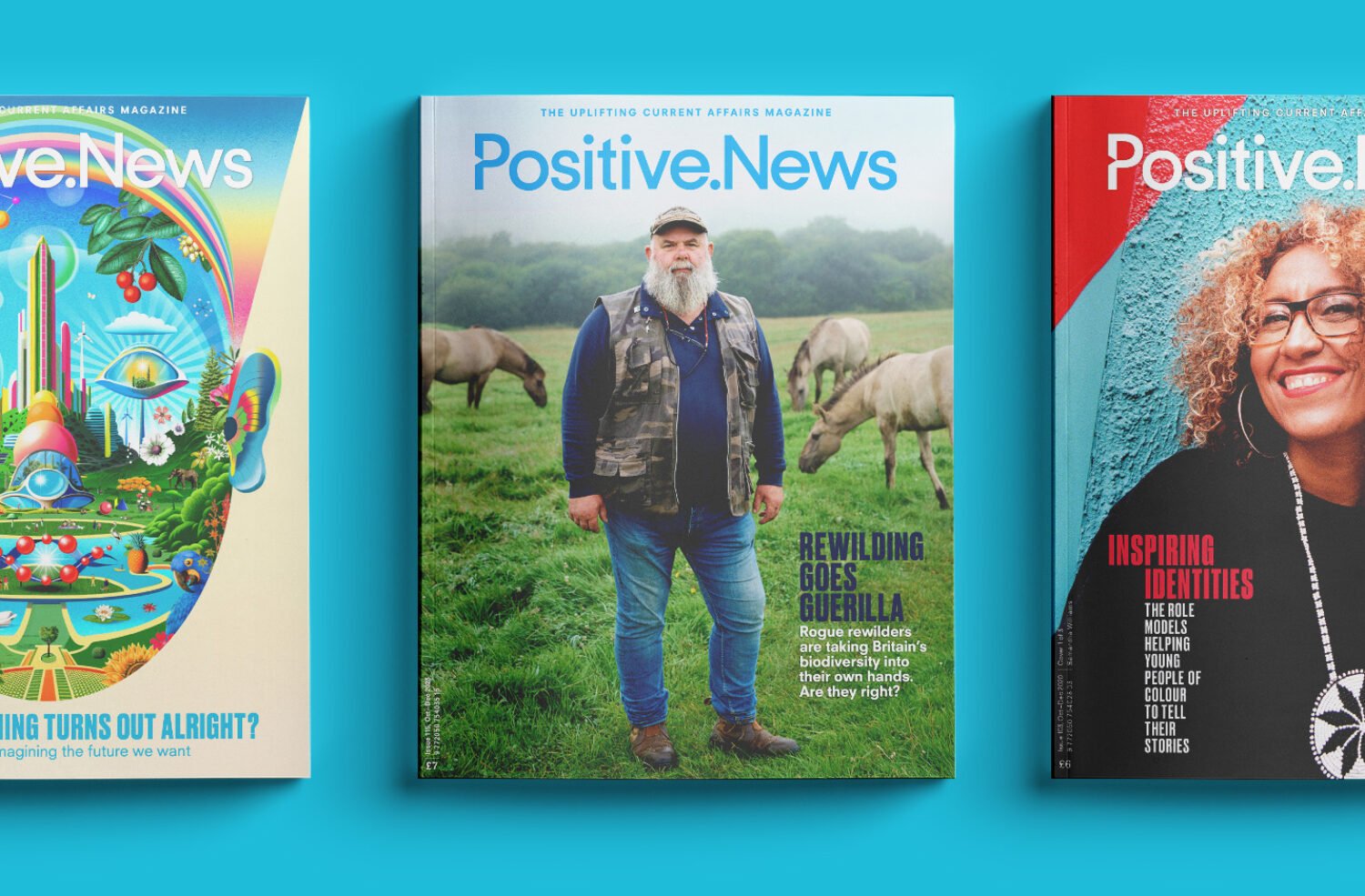‘Eco-anxiety’ is a growing challenge, so what can you do to manage it?
Feeling anxious in the face of climate breakdown is an entirely normal response – but how do you ensure your emotions don’t overwhelm you? How can they even be channelled for good?
As data from Google Trends shows that search queries related to ‘climate anxiety’ have increased dramatically – 27 times higher in the first 10 months of 2023 compared to the same period in 2017 – we’ve pulled together eight tips for building resilience, from reframing the issue to finding your climate community.

Experiencing climate grief and anxiety is a natural and arguably overdue response to these uncertain times. It’s entirely normal to worry and fear for the consequences when life as we know it is under threat, and people and species the world over are already being badly impacted.
Try to remember that you’re not alone, and that your feelings are simply a manifestation of your care and compassion for the planet and its inhabitants, human, plant and animal. The reality is, according to research, that if you feel anxious and if you care for nature, the more likely you are to take action to safeguard it. And that’s far better than turning a blind eye and hoping the problem will magically disappear.
Image: Lara Jameson

This isn’t the first time humanity has faced hardship, but our resourcefulness as a species means we’ve often flourished in the face of adversity. Technology and innovation are being mobilised to meet the challenge, and there are genuine reasons to be optimistic about the future. For example, there’s plenty of talk about negative climate change tipping points, but the same logic applied in the opposite direction – positive tipping points – might offer solutions. Some academics believe they are well within our grasp.
Image: Kamaji Ogino

It’s easy to feel overwhelmed by the gargantuan task at hand, but rather than succumb to guilt or anxiety, channel it into a motivating force for positive action. That doesn’t necessarily mean super-gluing yourself to the nearest zebra crossing: little things count, too. Make changes to your own life that align with your climate values. They might include simple emissions-reducing measures like swapping a car journey for a bike ride, buying secondhand, insulating your home, or switching to a more planet-friendly diet.
Image: Micheile Henderson


Climate dread expert Britt Wray suggests collective action is even better than going it alone: fostering community resilience builds our emotional fortitude. That means getting connected, developing social ties and sharing goals. Consider joining a local community energy group or rewilding project, for example. Get involved with a campaign that resonates with you. Share your voice and your concerns with others in person or through online spaces like Call Your Mother and Dear Tomorrow.
Image: Kampus Production

The deluge of doomy headlines and images of melting glaciers and ferocious blazes can feel paralysing, but there is good news out there. No one is suggesting burying your head in the sand, but focusing on facts and key articles, and counterbalancing with some solutions journalism will help stave off the sense of helplessness. Did you know, for example, that booming green energy growth is keeping the 1.5C dream alive? Or that China’s emissions are on the brink of tipping into decline? If you search for evidence that we’re defeated, you’ll find it, points out Rebecca Solnit.
What would happen if everyone suddenly started reading solution-focused journalism? We don’t know for sure – but we think it would be transformational. Signing up to our weekly newsletter, with which we uplift your inbox every Saturday morning with a roundup of the latest positive developments, is a good place to start. For a quarterly influx of constructive journalism, you can subscribe to our print magazine here.

Scientists have been sounding the alarm on the climate emergency for decades, and now we’re in this mess, we’re not getting out of it overnight. Policy shifts and legislation take time to manifest themselves as visible change – it’s often incremental to begin with but experience suggests once it reaches a certain tipping point it can become exponential. Take the adoption of solar panels, for example. Or EVs in Norway. Some of it might even seem a bit boring – we can’t expect everyone to get excited about advances in battery storage materials. And even after we’ve implemented change, it takes time again to measure its effect on our climate systems.
Image: Precious Madubuike

Recent research from Imperial College London shows how existing mental health conditions such as anxiety and depression can make us more vulnerable to climate distress. And it cuts both ways: eco distress can exacerbate mental health issues, with young people being particularly vulnerable. Thankfully there are meaningful measures you can build into your life to make you more resilient to its challenges. We covered a few of them here.
Image: Antoni Shkraba

If all else fails and you feel truly overwhelmed, don’t shy away from seeking out professional help or some other form of support. Watch out for warning signs that things are getting out of hand, such as intrusive thoughts, obsessive thinking, panic attacks and insomnia. Counselling or therapy might help you explore your feelings and develop some coping strategies. Search online for an eco-anxiety support group, or read up on the Good Grief Network’s 10 step programme, and find a group here.
In the UK, the charity Mind’s infoline is on 0300 123 3393. Help is also available from Samaritans by calling 116 123, or you can email and write to their experts. More information is at samaritans.org
Image: Cottonbro studio
Main image: Lyndon Stratford/iStock
You’re the solution that Positive News needs
Our small, dedicated team is passionate about building a better alternative to the negative news media. And there’s never been a greater urgency to our mission.
But to invest in producing all the solutions journalism that the world is longing for, we need funding. And because we work in your interests – not those of a wealthy media mogul or corporate owner – we’re asking readers like you to get behind our team, by making a regular contribution as a Positive News supporter.
Give once from just £1, or join 1,200+ others who contribute an average of £3 or more per month.
Join our community today, and together, we’ll change the news for good.





